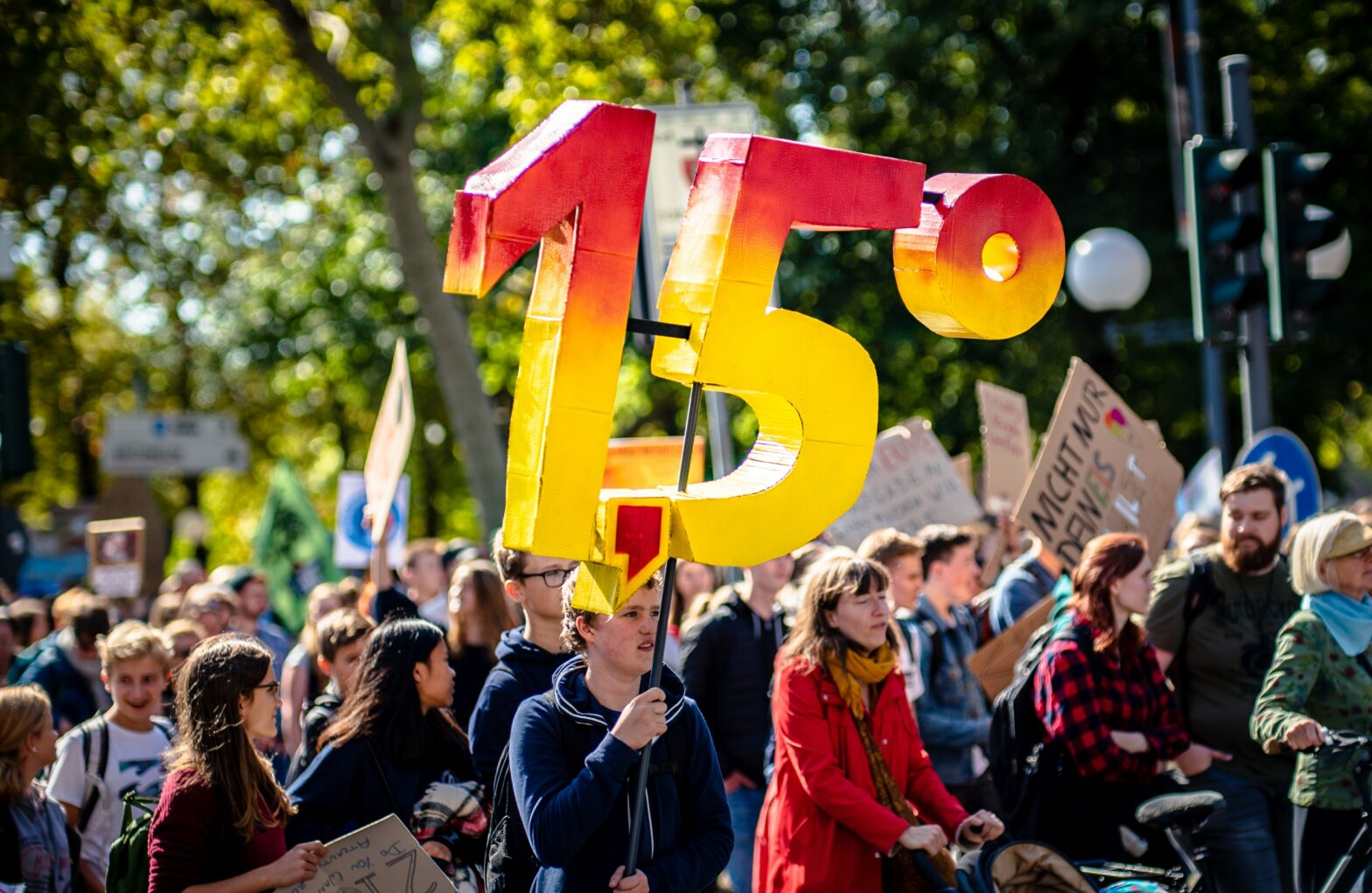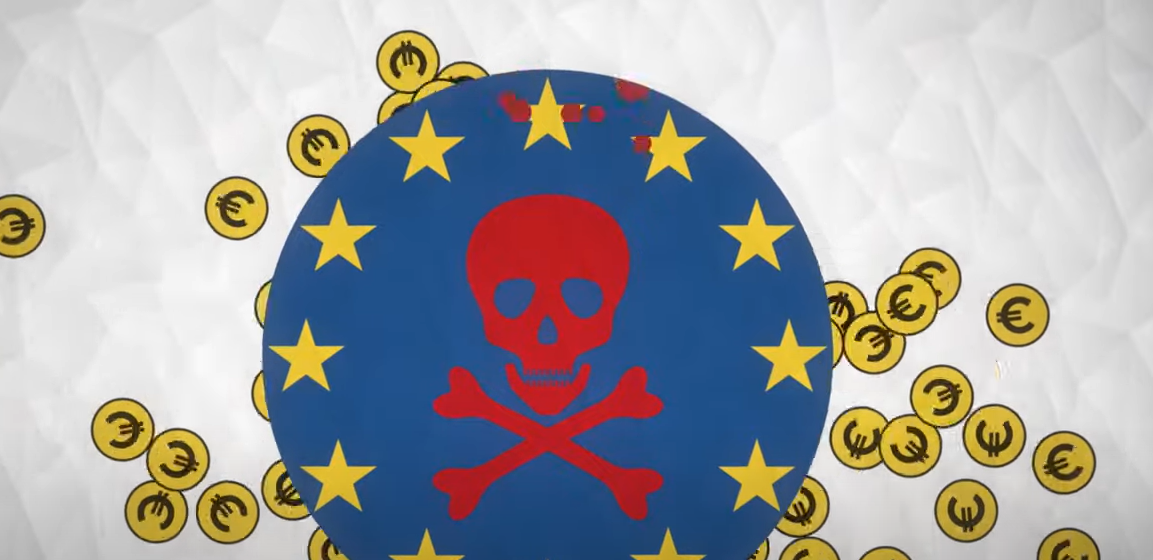Share Twitter Facebook Email Copy URL
“Climate action” will not lead to climate justice on its own
United Nations Secretary General (UNSG) Antonio Guterres’s State of the Planet speech on 3 December 2020 was almost flawless. Guterres presented impeccable facts and figures on the extent to which the climate crisis has damaged the Earth’s natural systems. Correctly asserting that human activities are at the core of the planet’s brokenness and that the time to avert climate cataclysm is running out, Guterres acknowledged that nature is striking back and inflicting ever-increasing havoc, particularly on marginalized communities who have contributed the least to the climate crisis.
While the imperatives to prevent climate breakdown are clear, how we achieve this presents an open question. Looking back, we try to understand how governments and the multilateral system see the pathway to a clean, green and sustainable recovery for the planet both from the pandemic and from the multi-layered economic, social, and ecological crises. Will this frenzy for more ambitious climate action usher in much-needed transformation, or is this a foreshadowing of dangerous distractions to come?
What Higher Ambition, and for Whom?
2020 was supposed to have been a momentous year for ambitious climate actions. The year marks the fifth anniversary of the Paris Agreement, the 26th UN Climate Change Conference (COP 26) in Glasgow, Scotland, and was supposed to be the year when countries showed they had followed through on commitments they had made. Additionally, governments agreed that every five years they would gather and present new ambitious targets aimed at stopping climate change and assisting those that had been greatly affected by it.
The pandemic has made big face-to-face meetings impossible. However, while official negotiations have been temporarily on hold, discussions between governments and other organizations have been on going. Throughout the year, short of having actual official negotiations, many high-level intergovernmental events, including the UN General Assembly, G20 Summit, Race to Zero Campaign, Finance in Common Summit, Climate Change Dialogues, and the Climate Ambition Summit have taken place. These events represent an attempt to gather the international community and motivate them to consider a “climate-positive recovery” from the pandemic.
As a growing number of countries pledged to significantly cut down their carbon emissions and become carbon neutral in the coming years, net zero emissions became a global rallying call. Countries representing more than 65% of global carbon dioxide emissions and more than 70 percent of the world economy made bold pronouncements in support of carbon neutrality.
In 2019, the United Kingdom became the first developed country to pass a net zero emissions law and has stepped up its commitment to reduce emissions by at least 68% by 2030. The European Union launched the European Green Deal at the COP 25 in Madrid, Spain, vowing to make the EU’s 27 member states sustainable, resource efficient, competitive, and ensure 0 net emissions of greenhouse gases (GHG) by 2050. As their contribution to meeting the objectives of the Paris Agreement, Japan and Korea, the world’s third and eleventh largest economies respectively, committed to carbon neutrality in October 2020. Additionally, Korea announced a USD35 billion New Green Deal which would end investments in coal. In July, China announced its aim to reach peak carbon emissions before 2030 and to be carbon neutral by 2060.
Even some poorer countries like Fiji and the Marshall Islands have caught the net zero emissions fever and committed to reduce their carbon footprint to 0. Bhutan, the world’s only carbon-negative country, has promised to remain carbon neutral for all time.
Net zero seems to be a highly ambitious goal and one that will inform future climate action, bringing the world closer to preventing a catastrophic rise in global temperature. Reaching net zero means the atmosphere is spared from new emissions. However, as the saying goes, the devil is in the details.
It would be interesting to highlight what these commitments from the biggest economies entail, especially for people on the ground. It might be good to ask, for instance, who really stands to benefit from the EU Green Deal? Or why the UK’s ambitious Ten Point Plan is criticized not only for being incoherent but also for relying on dangerous nuclear energy and unreliable and dangerous carbon capture and storage technologies? It would also be interesting to know whether these commitments would change the way the world’s biggest economies are doing business in the Global South. Unfair trade deals allow larger economies to amass huge profits in the Global South due to unfair trade deals that allow them to keep taking out natural resources, dump their agricultural and industrial products, and enjoy unregulated investments in fossil fuels and extractive industries.
Emissions Continue to Be Pumped into the Atmosphere
What net zero really means is that the production of harmful emissions will continue, but by restoring forests or using technologies that capture carbon will be balanced out, removing GHGs from the atmosphere. True, there are efforts to decarbonize by phasing out dirty industries, promoting investments in renewable energies, and restoring degraded lands. Nevertheless, the untold reality of net zero thinking is that it essentially allows rich countries and their corporations to buy and dazzle their way out of dirty, extractive, and extremely profitable activities.
Instead of transforming production and distribution systems, or aiming for real zero emissions, northern countries are increasingly relying on technologies to draw carbon from the air and store it underground. A lot of hype has been generated around the idea of promoting both public and private investments in Nature-Based Solutions (NBS), particularly in nature restoration and conservation projects in the Global South. These NBS are often described as actions which are inspired by or copied from nature and which will provide the real tangible benefits that nature provides, such as sequestering carbon, stabilizing soil, and regulating water flow. NBS are expected to deliver triple-win benefits for the environment, economy and society. Investing in NBS also makes good business sense, particularly for those that need a steady supply of natural resources or to meet their climate commitments and targets. NBS, in effect, enables the private sector to maintain profitability while improving corporate profiles with clean, green and sustainable credentials. How else can one explain the audacity of Big Oilgiants asking what the public is willing to do to help reduce emissions?
There are those who view the United States’ re-entry into the Paris Agreement as a reinvigorating force for climate action. However, while there are those that consider having the world’s largest historical polluter held accountable for its environmental impact on the world’s largest climate diplomacy stage as positive, many are concerned about the incoming administration’s support for carbon capture and storage, nuclear power, carbon markets and emissions trading, and environmental plan that won’t lead to any kind of a Green New Deal.
Palliative Responses that Make Capitalism Green
The pervasive narrative in multilateral forums is one where climate change is a global problem that everyone needs to contribute towards solving. Inaction to address climate change is seen as the biggest stumbling block and increased climate action from everyone is considered the only way forward. This is why countries from the Global South are encouraged to report on how they are making progress on further reducing their carbon footprints, no matter how small these footprints are. This is the reason why poorer countries are increasingly expected to look for ways and resources that mitigate and adapt to the impacts of climate change, dipping into their own national budgets, looking for foreign and domestic investments, and accepting loans. This would also explain the reluctance of rich industrialized countries to foot the bill for the losses of and damages to marginalized communities, especially those in the Global South, who are hit hardest by weather-related disasters and the slow but steady degradation of their land and water resources.
The problem with this construct is that it sweeps the structural and historical roots of vulnerability under the rug. Countries in the Global South are in a bind, suffering from problems caused by mounting debt and the lack of policy and fiscal space to face the compounded effects of the climate, economic, and social crises exacerbated by the pandemic. Borrowing has become the default solution for developing countries who are forced to bridge budget deficits caused by unequal trade and investments deals. This results in a vicious cycle of debt: countries borrow so they can continue to import, finance their infrastructure projects, meet interest payments on their existing debt, and to fund their COVID-19 response measures. Additionally, there is an increased pressure for the developing countries to transition towards more sustainable production, distribution, and consumption methods.
This is not just an issue of policy incoherence but rather the inherent failed logic of a broken global economic, trade, and financial structure. In a context where COVID-19 and the intensifying economic crisis have magnified pre-existing vulnerabilities throughout the Global South and North, the failure of the dominant development paradigm to offer just and lasting solutions to the multiple crises has become more obvious than ever before. The quick fix offered by banks to countries in the Global South is a temporary suspension of debt payments and the preparation of new loan packages with tougher conditions.
Papering over the Cracks
2020 was also the year for the European Union to deploy its Green Plan. The European Green Deal (EUGD), the flagship programme from the newly appointed European Commission, is poised to be put to the EU. Its intent is to make Europe the first continent to be climate neutral by 2050.
Unfortunately, the enticing idea of climate neutrality being achieved by 2050 is not accompanied by a coherent plan to combat the climate breakdown. The two main points why it fails are underlined here:
- The net zero target is a mirage made of technofixes which allow a business as usual mode to flourish. 2050 is too late to achieve carbon neutrality if Europe intends to do its fair share of the work to combat climate collapse.
- The programme of the EU Green Deal as it is currently, is based on a Eurocentric vision of climate action and remains incompatible with any climate action grounded in scientific research and fair practice principles.
The continuation of EU Free Trade agreement (FTA) policies, like the one signed with Vietnam earlier in 2020 or the EU-Mercosur deal are clearly in contradiction with the objectives claimed by the EUGD. The climate and social impacts of an EU-Mercosur FTA would be dramatic for South America, specifically affecting indigenous communities and their environments.
The vote in the European Parliament on the Common Agricultural Policy (CAP) for the 2021–2027 period is another example of the EU Green Deal being an empty shell, a false promise for climate action. While major changes were intended to restructure a sector that alone creates 10 percent of all greenhouse gases emissions in the EU, the new CAP looks very similar to the previous one. The EU budget for farming subsidies is the single largest budget the EU has to redistribute. However, the budget is currently not being redistributed to small scale farmers and 2 percent of the largest industrial farmers will still receive the vast majority of this money. Similarly, the inadequate conception of eco-schemes within the new CAP will allow those same very large industrial agents to greenwash their activity, effectively without triggering any systemic change in agricultural practices in Europe. Finally, the push for electric vehicles and the development of batteries for them will result in massive extractive processes in both Latin America and Southeast Asia, where lithium resources are concentrated. The call to import clean energy from North Africa and transform it into hydrogen is yet more proof of the dangerous limitations and neo-colonial tendencies of the European Green Deal.
The World Economic Forum states very clearly that “to build back better, we must reinvent capitalism”. The multilateral system’s vision for a post-pandemic climate resilient future is a made-over version of capitalism, one that is healthier, fairer, and greener but retains capitalism’s essential characteristics. It does not end the unbridled and wasteful production, distribution, and consumption of the capitalist system. This line of thinking posits that capitalism can be tweaked to mitigate the looming threat that climate change poses. Capitalism is looked upon as having the power and capacity to prevent the climate crisis through new ways of organizing economic activity, innovation, and technological fixes.
Capitalism cannot be made green. One can’t expect markets, corporations, and institutions to provide real and lasting solutions to the problems they have created and intensified. This is why calls for stronger solidarity, international cooperation, climate-positive recovery, net zero emissions, and Nature-Based Solutions within the frame of the dominant development model sound hollow.
Climate action within the framework of capitalism is a dangerous distraction.
The Antidote Is Systemic Change
Climate action should not be used as a smokescreen for more climate-disruptive carbon-intensive programmes that reproduce the inequalities that existed pre-pandemic. What is needed are systemic solutions that correspond to the intersections and gravity of the ecological, economic, social, and political crises. Pocket-sized success stories of communities of practice engaged in eco-friendly production and waste management downplay the structural links between contemporary capitalism, the ecological crisis, and the need to democratize global economic governance. Without addressing the intersecting crises that the capitalist system foments, these success stories are beautiful distractions.
This said, it is also clear that the pandemic presents an important tipping point. The pandemic’s complications, the way it has spread rapidly across the globe, and the disproportionate impact it has had on the vulnerable and marginalized is a wake-up call to acknowledge serious flaws in the current system.
Corporations are getting bailed out. Extractive industry projects continue to break ground. Trade negotiations and agreements are continuing, despite calls to suspend them amidst increasing concerns around inequalities such as vaccine apartheid and others that undermine the spirit of international cooperation and solidarity.
Civil society and social movements are calling for a just recovery that puts people and planet front and centre. Calling for the abandonment of the old normal, movements continue to build unprecedented solidarity, demanding accountability and solutions aimed at addressing the systemic and structural roots of vulnerability.
Activists have gone from mobilizing in large numbers throughout 2019 to the isolation of lockdowns that began in early 2020. Under current circumstances, activists require creative and innovative techniques to mobilize, organize, and reach out to each other, the public, and decision-makers. However, with the most internet-savvy generation of climate activists, this could be the moment that will show how different justice movements in the Global South and North can triumph over this discredited world order dominated by traditional politicians, corporate clubs and conventional thinking. This could be observed in various climate justice actions and actions organized by civil society organizations that took place in 2020.
In addition to global climate strikes that have continued online as well as socially- distanced bicycle demonstrations or sit-ins, there have been a number of digital conferences focusing on a just recovery, Green New Deals, real emission-zero-targets, de-growth, just climate finance, and other fields of climate justice. For example, around 8,000 participants registered for the From the Ground Up Global Gathering for Climate Justice online summit in November 2020, which took place at the same time as the intended COP 26 in Glasgow. Organized by the UK-based COP26 Coalition, the Global Gathering offered an empowering forum for activists from all around the globe, it was an opportunity for representatives from the Global South and frontline communities to raise their voices. The Global Gathering created a space for hosting events, mobilizing, strategizing and learning from each other. Concurrently, young people around the world organized a Mock COP 26, where they voted on an 18 point treaty which was presented to climate activists and world leaders.
These networking and organizing events build the base of a community that engages with the continued struggle for climate justice in 2021. Both grassroots movements and civil society organizations are prepared to push negotiating parties at COP 26 in Glasgow (regardless of whether the conference is held online or in person) towards global justice this year. And they will do the same with their governments at home.
UNSG Antonio Guterres’ speech was almost perfect. Except that a climate-positive recovery will not happen just by flicking an imaginary green switch. It will only come about by making another world possible. In the struggle to prevent further climate catastrophe, climate justice is the only solution for our broken planet. We are just getting started.
Tetet Lauron is based in the Philippines and works as an adviser for the Rosa-Luxemburg-Stiftung. Nessim Achouche works as a project manager in the Brussels Office of the Rosa-Luxemburg-Stiftung. Katja Voigt is project manager for North America and climate politics at the Rosa-Luxemburg-Stiftung. Nadja Charaby is Head of the International Politics and North America Unit at the Rosa-Luxemburg-Stiftung as well as senior advisor for climate politics. This article was first published on rosalux.de.




